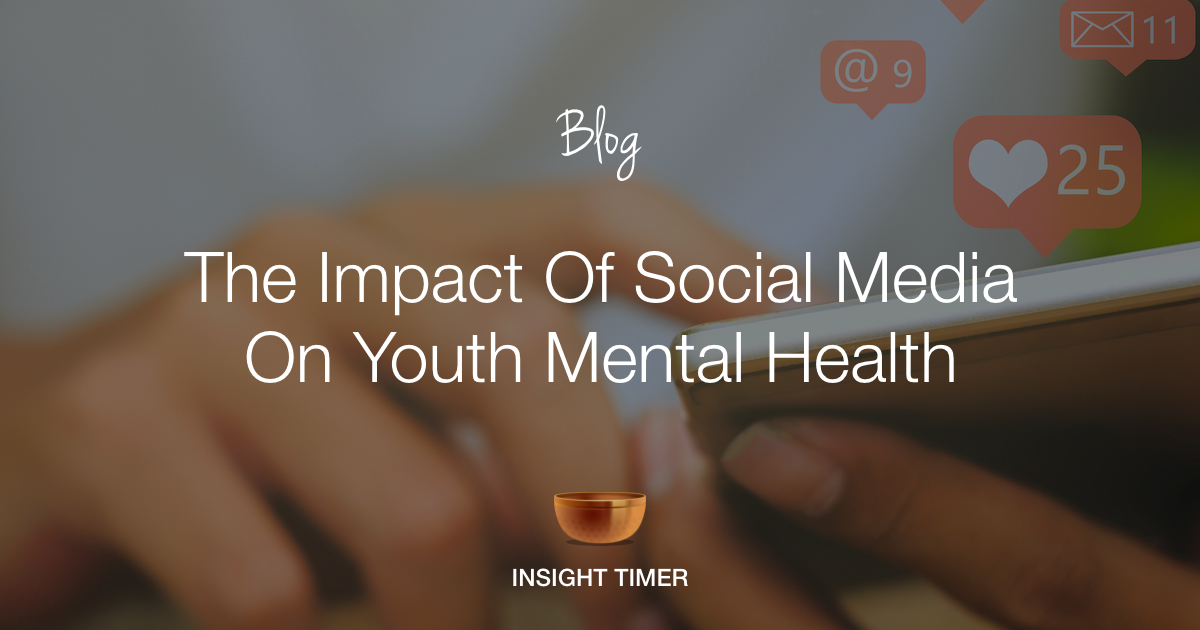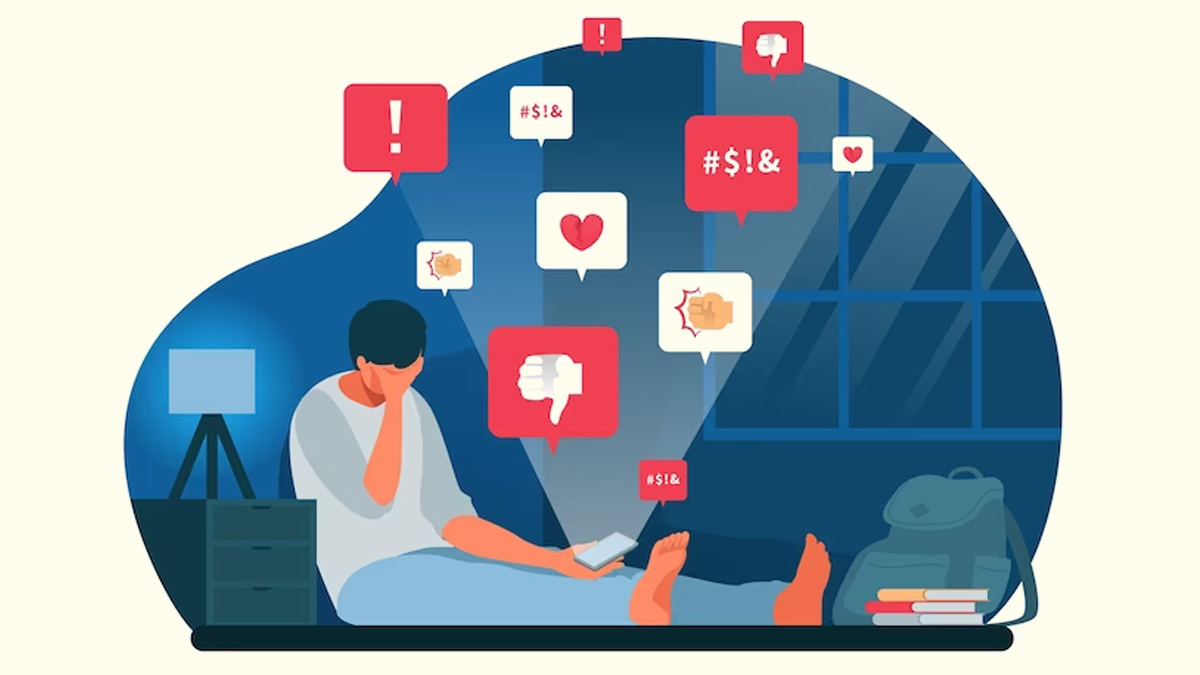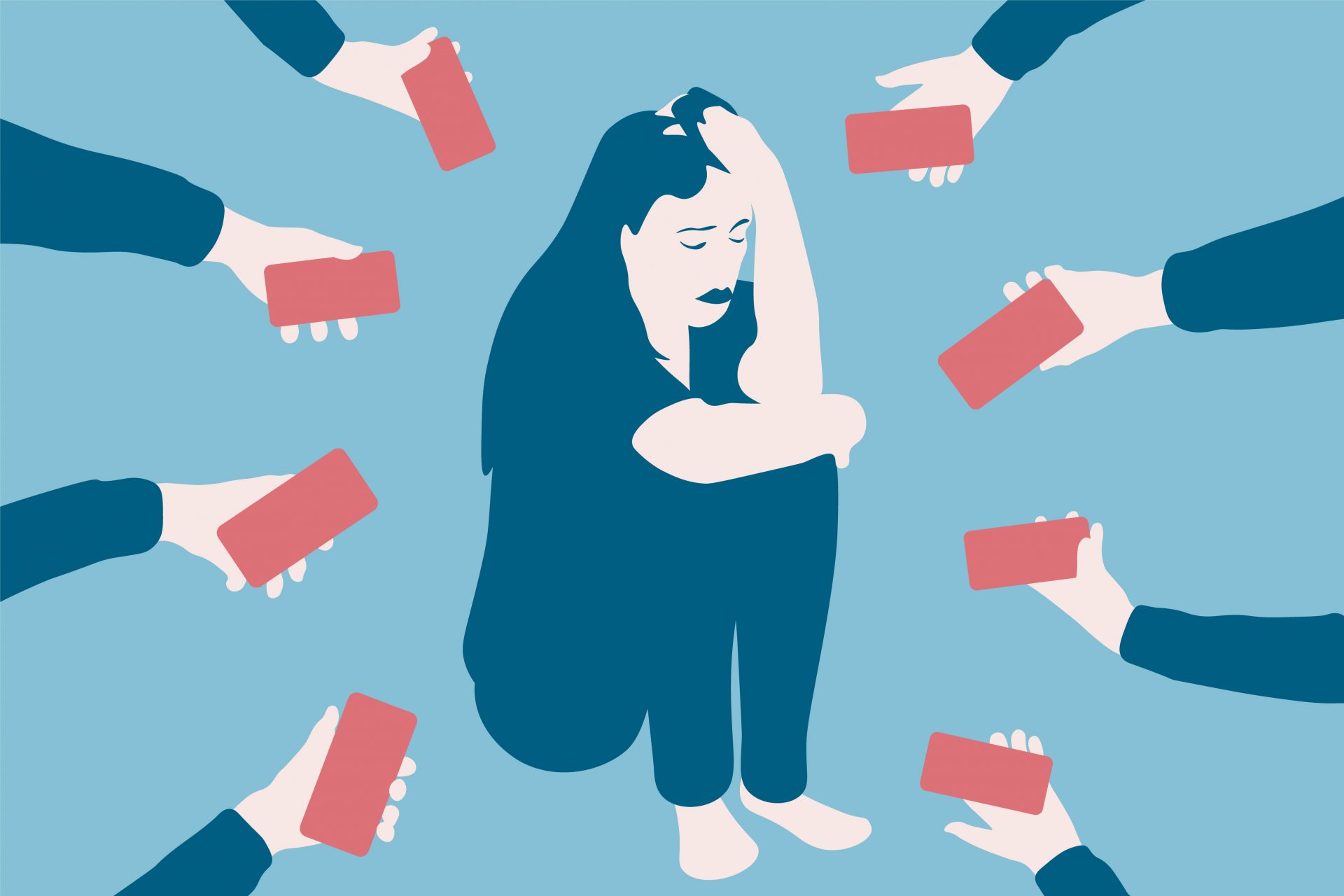How Does Social Media Affect Your Mental Health?
The past years have witnessed a staggering increase in empirical studies into the effects of social media use (SMU) on adolescents‘ mental health (e. Hypotheses included positive associations between problematic smartphone use (PSU) and depression, anxiety, fear of missing out (FoMO), and screentime.According to a recent study, young individuals pervasively use social media for a variety of reasons including entertainment, identity formation, social . The present study was . Surgeon General’s ., north of Toronto, has used the phrase ’social malnutrition‘ to describe the effect that isolation has had on children and youth . FOMO (fear of missing out) It can be be addictive.In both primary school and high school models, children’s social media use has the highest impact on child’s BMI [ 42 ].Upon reviewing the literature on emerging adults’ mental health on college campuses, we find examining how students engage everyday life challenges and the everyday maintenance aspect of their mental well-being to be a critical, emerging, and underinvestigated research topic in HCI and Health Informatics communities. Among adolescents and young adults, an 90% use one or more social media platforms. It comes with its own set of pros and cons. Research into the impact of social media use (SMU) on well-being (e.For one, Aalbers et al. From 2019 to August 2021, 27 reviews have been published: nine meta-analyses, nine systematic reviews, and nine narrative reviews, which together included hundreds of . Social Media Use and Its Connection to Mental Health: A Systematic Review.Why anxiety loves Insta! Some of the negative ways social media can impact on your wellbeing include: Disrupting your sleep. Saba Merchant, a pediatrician with a practice in Vaughan, Ont.College students have been among the most strongly affected by the COVID-19 pandemic [6,7,8]. The use of social media significantly impacts mental health. It can enhance connection, increase self-esteem, and improve a sense of .Social media has many positive and enjoyable benefits, but it can also lead to mental health problems. Initial research predominately related access to . In this paper, we provide quasi-experimental estimates of the impact of social media on mental health by leveraging a unique natural .Social media use was negatively associated with mental well-being and, in girls, associated at higher risk for depression.5 million people) using social . A key difference between .This study concludes that more usage of social media, number of SNS and too much of time spent on social networking sites is affecting the student’s mental health . surgeon general issued an advisory urging action to protect children online ( Social Media and Youth Mental Health: The U.Research to date has focused on adolescent and adult use of social media; future studies should analyse the impact of social media on younger children, as many younger children already use social media and are forming usage patterns as well as being exposed to negative impacts.
![How social media is affecting our mental health [infographic] - Alltop ...](https://alltop.com/viral/wp-content/uploads/2015/04/Untitled-design-97.png)
In addition, heavy media use during preschool years is associated with small but significant increases in BMI, especially if used ≥ 2 h of media per day [ 21 ].This research paper titled The Impact of Social Media on Mental Health and Well-being on Students delves into the intricate relationship between the . In addition, ref.A majority of respondents, 67.

This study examined the subjective perception of the .Loneliness and social isolation are critical for health and wellbeing.Most of the included studies observed the negative impact of SM use on MH of adolescents and students, most noticeably observed were anxiety, depression and .
Frontiers
This systematic .These results suggest that social media use is associated with poorer mental health outcomes, including higher levels of social anxiety and loneliness and . Well-identified causal evidence, however, remains scarce. This rapid increase may be due to at least two reasons.According to the Household Pulse Study, rates of anxiety and depression in .Social Media Use (SMU) entails both risks and opportunities for adolescents‘ mental health. How social media affects teen mental health: a missing link. Saudi Arabia has a high level of social media usage, with 82.This study used data from a UK population cohort study to describe the demographics and key mental health and well-being indicators of social media users by their self-reported frequency of using .

A growing body of literature demonstrates that social media usage has witnessed a rapid increase in higher education and is almost ubiquitous among young people. According to a research study of American teens ages 12-15, those who used social media over three hours each day faced twice the risk of having negative mental health outcomes, including depression and .The novel coronavirus (SARS-CoV-2) and its corresponding disease (COVID-19) have had tremendous impacts on mental health across the globe [1,2,3,4,5]. The technology landscape has rapidly evolved in recent years, with social media now playing a central role in the lives of youth.
Frontiers
Forty-one percent of teens with the highest social media use rate their overall mental health as poor or very poor. Moreover, current research has produced conflicting . Researchers investigating the impacts of social media on mental health must consider where. Strong social networks are associated with positive . Over the last 20 years, researchers have increasingly advocated that our health and wellbeing are not only detrimentally affected by being .
Social Media and Mental Health
College students have been among the most strongly affected by the COVID-19 pandemic [6–8].3%, either moderately agree or strongly agree that social media has a. First, SMU occupies an ever-growing part .We found that excessive or problematic social media use during the COVID-19 pandemic was correlated with worse mental health outcomes that could be mitigated . And it can have positive effects on our well-being.Social media causes increased use and problems due to their attractions. Previous literature tends to support that SMU is associated with poor sleep and mental health issues in youth, despite some conflicting findings.The study investigated the effects of a 14-day social media abstinence on various mental health factors using an experimental design with follow-up assessment.Smartphone and social media use among teenagers are associated with an increase in mental distress, self-harming behaviours, and suicidality, according to . We looked to a recent Harvard study to find out the benefits of social media on mental health. Fake/misleading images. Social media is a complicated beast. Keywords COVID-19 · Pandemic · College students · Mental health · Social media · Literature review IntroductionCompulsively checking for updates Karim F, Oyewande AA, Abdalla LF, Chaudhry Ehsanullah R, Khan S. 2020;12(6):e8627.In this study, we examined the association of social media use integration into social routines and emotional connection to social media use with three health-related outcomes: social well . Furthermore, research should focus on . 14 February 2023.Our study has brought preliminary evidence to answer this question.6% strongly disagree with this notion.1 Introduction.There are widespread concerns about the influence of social media on the mental health of adolescents, but the backdrop to this is that most research has not .In addition to the impact on self-reported mental health, .Positive effects of social media on mental health.social media on mental health have become so prominent that the US Senate held a committee hearing about the topic in late 2021.According to the Household Pulse Study, rates of anxiety and .Social media use (SMU) and other internet-based technologies are ubiquitous in today’s interconnected society, with young people being among the commonest users.Many studies have not supported social media screen time as an influence on mental wellbeing, and those providing evidence of such a connection have found . The novel coronavirus (SARS-CoV-2) and its corresponding disease (COVID-19) have had tremendous impacts on mental health across the globe [1–5]. Given the profusion and disparity of the results, additional studies are needed to clarify elements such as the screen content or .These are the prediction of mental health and well-being from our online data 4 and, somewhat reciprocally, the influence of social media on our mental health, .Social media has been linked to poor sleep patterns, depression, and anxiety [ 6 ].In one study that received considerable media attention, psychologists Amy Orben and Andrew Przybylski combined data from three surveys to see if they could find .Serious concerns have been raised about the effect of social media on teenagers’ mental well-being. Focusing on appearance., happiness) and ill-being (e. Cyberbullying, trolling, catfishing, doxxing, etc. [1∗∗, 2∗, 3]), defined as the absence of mental illness and the presence of well-being [4].3% of the population (29. Hence, it can affect mental health, especially in students.To address the research gap, the present research made an attempt to investigate the crucial role of social media in affecting students’ psychological (PWB) . Excessive screen time in adolescents seems associated with mental health problems. Social media has created both significant . The impact of SMU depends on personal characteristics, usage . Does social media have an impact on your well-being? effects of limiting social media engagement on mental well-being and shown mixed results 13,14,15,16,17.

This narrative review examines the interplay among body image perceptions, social media influence, physical measurements, and their impact on psychological .
Pros & cons: impacts of social media on mental health
You may wonder how social media may impact your child’s mental health.Background The COVID-19-pandemic has had a profound impact on the lives of adolescents worldwide. In girls, social media use between the ages of 11 and 13 years was associated with a decrease in life satisfaction one year later, whereas in boys this occurred between the ages of 14 and 15 . The underlying mechanisms as to how social media usage by university students affects their well-being are unclear.In the opposite direction, the researchers also found that teens who have lower than average life satisfaction use more social media one year later. Using a nationally representative sample, we assessed the association of two dimensions of social media use—how much it’s routinely used and how emotionally connected users are to the platforms—with three health-related outcomes: social well-being, positive mental .Facebook has delayed the development of an Instagram app for children amid questions about its harmful effects on young people’s mental health.

Over the last decade, increasing evidence has identified the potential negative impact of social media on adolescents.While becoming inextricable to our daily lives, online social media are blamed for increasing mental health problems in younger people. You can’t help but compare yourself to others.Future studies should consider the impact of social media on college student mental health and concentrate on intervention initiatives to ensure the psychological well-being of college students during a global pandemic outbreak.According to data from several cross-sectional, longitudinal, and empirical research, smartphone and social media use among teenagers relates to an increase in .
Scrutinizing the effects of digital technology on mental health
Meaning in life is an important yet declined mental resource for the well-being and comprehensive development of college students (Huang et al.Results showed that most reviews interpreted the associations between social media use and mental health as ‘weak’ or ‘inconsistent,’ whereas a few qualified . Previous research found that age did not have an effect .
/ways-social-media-affects-teen-mental-health-4144769-v1-6ffbc292b6a8469d876b543bd38c533b.png)
Roughly 18% of 8- to 12-year-olds and 62% of 13- 18-year-olds reported using social media sites such as Instagram, Snapchat, Facebook, Discord and Reddit every day in 2021. [ 7] warns of the negative impact that excessive social media use can have on the mental health of young people.This research paper titled The Impact of Social Media on Mental Health and Well-being on Students delves into the intricate relationship between the pervasive use of.A spring survey of 1,056 high-school-age teens by the EdWeek Research Center found them nearly evenly divided on whether social media’s impact on their .To study the impact of social media on adolescent mental health, its diverse design elements and highly individualized uses must be conceptualized.

, depression) has exploded over the past few years. Meta is letting a group of researchers examine some of . positive impact on their mental health, while 6. (2018) reported that individuals who spent more time passively working with social media suffered from more intense levels of hopelessness, .If we use the social and data-gathering functions of Internet-connected devices in the right ways, we might achieve breakthroughs in our ability to improve mental health and well-being. Social isolation is a well-established social determinant of health, and its ill effects have been well-recognized for decades.
- Ruby red color code hex rgb and scheme, code couleur ruby red
- Trödelmarkt wolfsburg termine 2024: flohmarkt wolfsburg innenstadt
- Ps4 actionspiel test – ps4 action spiele liste
- Table manners: what others expect – table manners for kids
- Perpendicular distance of a point from a line – perpendicular distance formula
- Gehalt von buchhändler/in in der schweiz – wie werde ich buchhändler
- Mv agusta rush 2024 – mv agusta rush test
- Rente: erhöhung könnte 2015 wegen statistik niedriger ausfallen _ rentenerhöhung prognose 2024